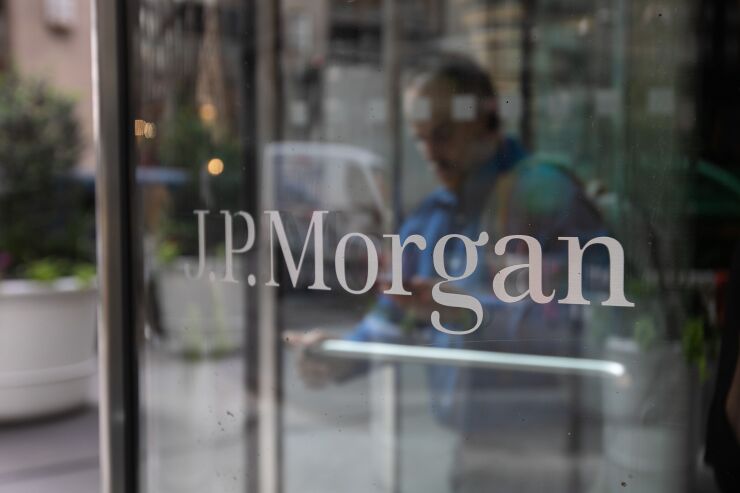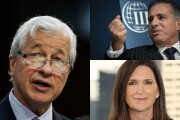
UPDATE: This article includes analyst commentary, along with information from JPMorgan Chase's fourth-quarter earnings calls.
Chairman and CEO Jamie Dimon skirted around the question on many investors' minds – who will succeed him when he chooses to retire – with the megabank focusing instead on net interest income guidance and its capital strategies.
Chief Financial Officer Jeremy Barnum said on Wednesday's call with journalists that hopes for a
"There's no question that there's a significant amount of increase of optimism in the overall environment," Barnum said. "Obviously, markets have been very active, and that seems to have created a tailwind across the industry. It's hard to establish causality there, but there's no question that we are in a kind of animal-spirits moment right now."
In the fourth quarter,
Equity analysts said in notes that
Although deteriorating credit quality at
Looking ahead, Dimon noted that despite a resilient economy, the industry isn't out of the woods yet.
"Two significant risks remain," Dimon said in a press release. "Ongoing and future spending requirements will likely be inflationary, and therefore, inflation may persist for some time. Additionally, geopolitical conditions remain the most dangerous and complicated since World War II."
Still,
Net interest income at the bank — and across the industry — has been compressed as interest rate cuts limit the possible yield on assets, deposit costs remain elevated and deposit balances shrink. The bank maintained its 2025 expense guidance of $95 billion, compared with $91.1 billion in 2024.
Succession planning
But even as
Dimon told analysts there are several people in the running — adding that "one or two" of whom might be unexpected — but no plan is set in stone. He added that he still expects to step down as CEO in the next five years, which he called "the rational thing to do." Depending on the board's decision, Dimon said he may also leave the chairman seat when the time comes.
"This is more of a natural progression," Dimon said Wednesday. "We're thrilled [Piepszak] wants to stay. It'll contribute to sustainability over time, because she'll be here after I leave. And she also thinks the world of all the other folks that she might end up working for."
Capital strategy
Another top-of-mind strategic focus was
"We feel very comfortable with the notion that it makes sense for us to have a nice store of extra capital, in light of the current environment," Barnum said. "We believe there is a good chance that there will be a moment where we get to deploy it at better levels essentially in whatever way than the current opportunities would suggest."
But after building its cushion for nearly three years, in part to prepare for new rules that now seem unlikely to materialize, Barnum said,
Special dividends, however, aren't in the cards, Dimon said. He added the bank will be patient in how it deploys its excess capital.
"I've never thought having cash in your pocket is a bad thing," Dimon said.
Dimon has been critical of the regulators' proposal to hike capital requirements for the largest banks, panning
"It is possible to achieve both goals," Dimon said. "This is not about weakening regulation … but rather about setting rules that are transparent, fair, holistic in their approach and based on rigorous data analysis, so that banks can play their critical role in the economy and markets."
Other big banks, including
"Results reaffirm our constructive view of the mega-cap banks given [net interest income] upside, well-behaved credit costs and our expectations for an improved regulatory backdrop," the note said.






